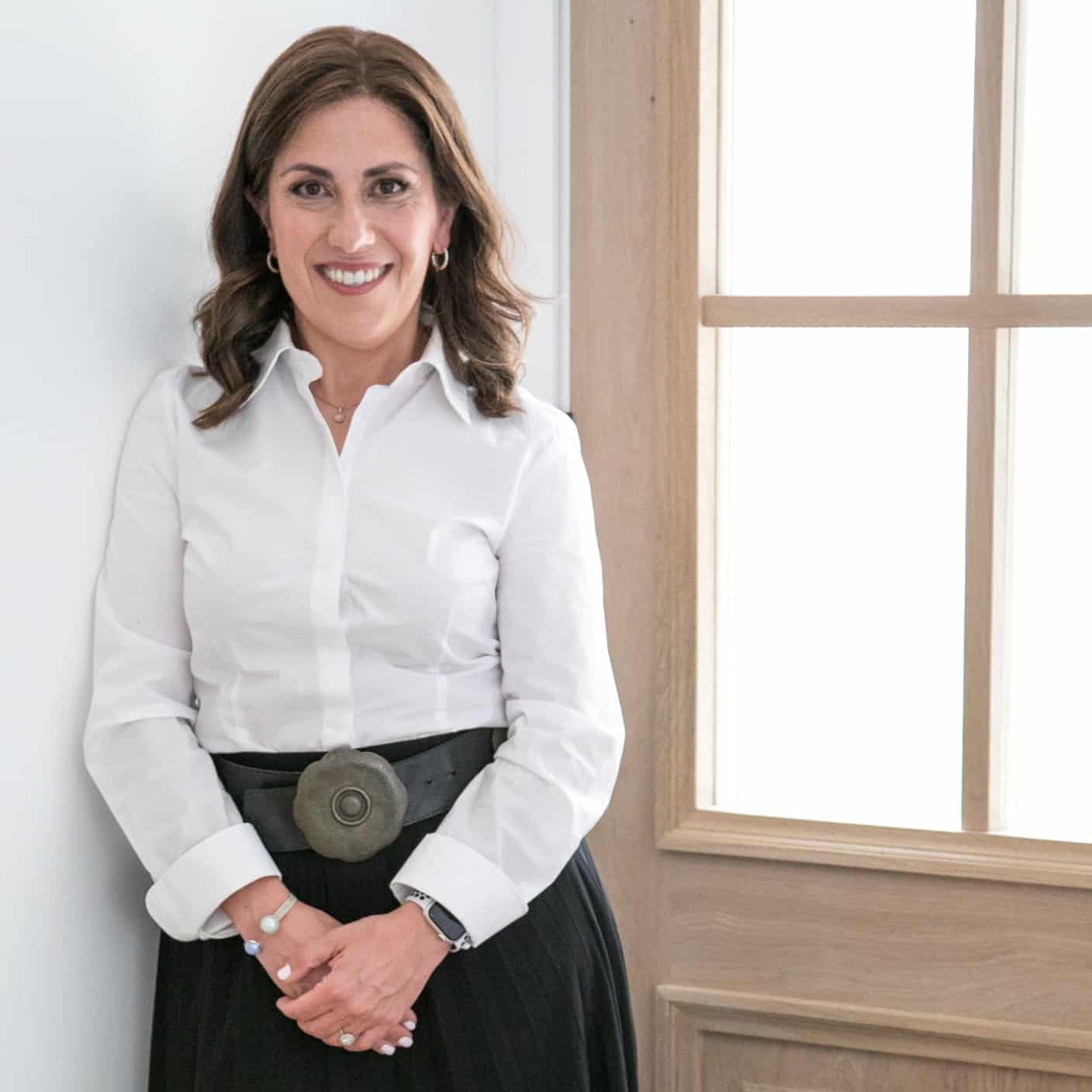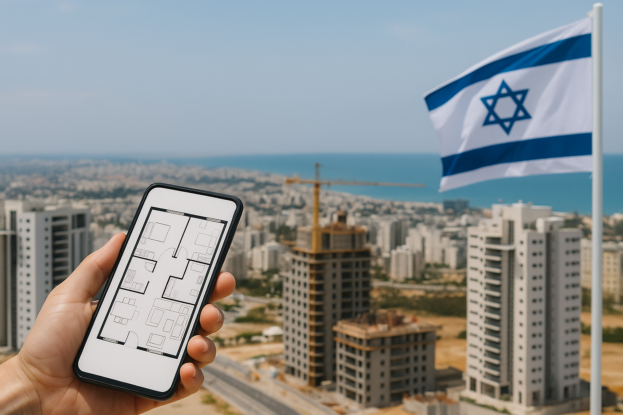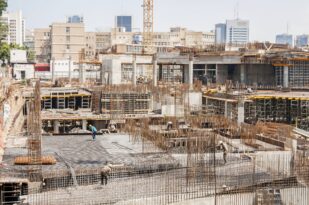In times of war with closed borders, buying property in Israel remotely has become more than possible, and it may even be the smartest step you can take. Whether as an act of solidarity, a long-term plan for aliyah, or a way to support Israel’s economy when it needs us most, owning a home in Israel offers security, belonging, and connection. With trusted professionals, technology, and clear guidance, buying off-plan from abroad is within reach. More than ever, now is the time to buy in Israel remotely — and this article breaks down the process into five simple steps to help you do it with confidence.
These are not easy days for Israel, as sirens wail, families run for shelter, and fear and uncertainty fill the air. And in every corner of the world, Jews are feeling it too — the worry, the helplessness, the inability to go about daily life as usual. The question echoes everywhere: Will Israel survive this?
But if there’s one thing history has taught us, it’s that Israel doesn’t lose wars. We can’t afford to, and we won’t. Our resilience isn’t just a slogan; it’s who we are. We get up. We rebuild. We come back stronger every single time.
And we’re already seeing it. Despite the war, Israel’s economy shows signs of strength. The shekel has regained ground. High-tech investment, the lifeblood of Israel’s economy, continues to flow. The Tel Aviv Stock Exchange, a reflection of long-term belief in this country, has not only held steady, it’s rebounded significantly in recent weeks. History shows that after every conflict, Israel emerges more determined, more innovative, and the economy rebounds quickly. When this war is over, demand for homes will rise, prices will follow, and people will be eager to invest, to build, and to move forward.
That’s why buying a home in Israel today is about more than bricks and mortar. Whether as an act of solidarity, a financial investment, a future plan for aliyah, or simply a way to feel rooted in the land, buying a home in Israel has taken on renewed significance in these challenging times. It’s about belonging, it’s about resilience, it’s about standing with our homeland when it matters most , and safeguarding our future in the only country that will always be ours. With anti-Semitism surging across the globe and the harsh reality that borders can close overnight, more and more people are realizing that owning a home in Israel isn’t just emotional: it’s practical, protective, and personal.
And right now, buying a home is also one of the most meaningful ways to support Israel’s economy when it needs us most. The war has taken a devastating toll on families, on communities, and on the economy. Buying property isn’t just for your future, it’s a real, tangible way to strengthen the country, stand with the people, and help Israel rebuild.
But how can you buy property if you can’t physically be here? When flights are grounded and borders are closed? You don’t need to be here in person to buy in Israel remotely. Thanks to technology, trusted professionals, and step-by-step support, buying property remotely — especially off-plan, before construction is complete — has never been more accessible. During the COVID-19 pandemic, when travel was nearly impossible, buyers from around the world successfully navigated the process from afar. In today’s uncertain climate, it’s not only possible to do the same, it might even be the smartest path forward.
This article breaks down the process into five clear steps, helping you navigate your purchase with confidence and clarity, wherever you are in the world.
Why Buy Off-Plan From Abroad?
Off-plan properties are a fantastic match for remote buyers. There’s often nothing to walk through anyway, and everything you need to make an informed decision can now be done online. Developers provide renderings, floor plans, simulations, and detailed specs. You can sign certain contracts digitally, take virtual tours, and meet with professionals over video.
Buying off-plan also gives you access to better pricing and flexible payment terms compared to pre-owned homes. One of the biggest advantages is the extended timeframe: payments are typically spread out over the course of construction, meaning you don’t need to come up with the full amount upfront. It also gives you time to plan your finances, your move, or your aliyah at your own pace.
Buying from abroad doesn’t mean buying blindly. It means working smart, with the right people and tools in place. Here’s how to do it, step by step.
Step 1: Define Your Goals and Parameters
Before diving into listings or reaching out to agents, take time to reflect on what you really want. Why are you buying this property? Is it part of a plan for aliyah in the coming years? A second home for visits and holidays? A place to invest? Something to pass down to your children? Your purpose will shape every decision from here.
Next, take time to think about what truly matters to you, both in a home and in the community around it. Do you want to be in the heart of a major city like Jerusalem or Tel Aviv, or would you prefer the quieter pace of a small town or yishuv? Are you looking for a strong Anglo community, or are you drawn to a more Israeli environment?
Consider your religious lifestyle, proximity to schools, public transport, community services, and long-term resale value. Also, think practically — what type of property fits your needs? Are you looking for an apartment, a garden unit, a penthouse, or a private home? Do you prefer a small, boutique building or a larger, modern project with amenities? And what size space will work for you now, and in the years to come?
And, of course, set a realistic budget, remembering to account for things like legal fees, upgrades, taxes, and currency transfer costs. As a general rule, it’s smart to add 12–15% to the purchase price to cover these extras.
If you’re not sure where to start, our Buyer’s Guides and podcast interviews are packed with helpful insights to guide your thinking.
Step 2: Work With a Real Estate Agent To Choose A Project
Your real estate agent in Israel is your partner on the ground — someone who understands the process, knows the different offerings, and can help you differentiate between projects. You want someone who can interpret floor plans, ask the tough questions, and steer you away from flashy but unproven developments. Someone who’s connected, who not only understands the market, but also takes the time to understand your specific needs as a buyer living abroad.
They’ll be honest with you about the pros and cons, patient enough to walk you through everything, from comparing locations to understanding developer reputations, and skilled enough to negotiate on your behalf. Once you’ve defined your parameters, your agent can begin narrowing down the options and helping you evaluate which projects align with your goals.
Buyitinisrael’s searchable project listings can give you a great head start. We offer a strong selection of projects from around the country. And, if you don’t find exactly what you’re looking for there, we can help you explore other options and guide you toward the right project for you.
Step 3: Hire a Real Estate Lawyer Experienced With Remote Clients
Legal representation is absolutely essential in any real estate transaction in Israel, and when you’re buying from abroad, it becomes even more critical. Your lawyer will review the purchase agreement, conduct due diligence, and negotiate terms on your behalf. They’ll also prepare a power of attorney document, allowing them to sign legally binding documents for you, so you won’t need to fly in.
If you’re a foreign citizen or buying through a trust or company, your lawyer will guide you through the specific tax implications and reporting requirements that apply. And if you’re planning aliyah in the next few years, they can help you explore your eligibility for reduced purchase tax or residency-based benefits.
Buyitinisrael regularly publishes detailed explainers on tax and legal matters for foreign buyers — a helpful resource alongside your conversations with your attorney. And if you need, we can connect you with a vetted, reputable, English-speaking lawyer to guide you through the process.
Step 4: Sort Out Your Financing
Next comes the financial piece. As a foreign buyer, you may be able to take out a mortgage in Israel, but terms will vary depending on your status, income, and the bank you choose. An English-speaking mortgage broker can help you understand your options, gather the necessary documentation, and compare offers across banks.
You’ll also need someone to help ensure your funds are transferred securely and in full compliance with Israeli banking regulations. This is the time to work with a trusted currency specialist who understands the regulations and process for foreign buyers. It’s also a good idea to consult with a financial advisor back home, especially if you’re drawing from retirement accounts, managing investments, or need to plan around foreign currency exchange.
The financing process can be complex at times, but with knowledgeable and experienced professionals on your side, it becomes far more manageable. Buyitinisrael can connect you with trusted experts to help guide you through every step.
Step 5: Plan for What Happens After You Sign
Once the contract is signed, you enter a new phase — one that may last several years, depending on the stage of the project. Throughout the construction process, there will be milestones to track, decisions to make, and updates to manage. While you may not be on-site, you’ll still be very involved, especially when it comes to upgrades, kitchen design, finishes, and payment schedules.
That’s why it’s so important to have someone “boots on the ground” — like a project manager or interior designer — who can visit the site, attend walkthroughs, and coordinate with the developer on your behalf. They’ll ensure your customizations are noted, your paperwork is submitted on time, and any issues that arise are dealt with quickly.
Even if you plan to move in years from now, your presence (or your proxy’s presence) during the build can make a big difference in both the final result and your peace of mind throughout the process.
Your Home in Israel Is Closer Than It Feels
Buying property in Israel is more than a transaction. It’s a connection to the people and the land of Israel. And while the road may feel uncertain right now, the tools to move forward are already in your hands. You’re not the first to buy from afar, and you won’t be the last. From COVID lockdowns to times of war, thousands of people have taken this leap, and many have done it well. With a little preparation and the right team by your side, you can too. There has never been a more important or strategic moment to buy in Israel remotely.
At Buyitinisrael, we’re here to help with up-to-date listings, expert interviews, step-by-step guides, updated market news, and practical tools for every stage of the journey. Whether you’re just beginning to dream or are ready to sign, you don’t have to do it alone.
And remember, history shows that those who act early, especially during uncertain times, are often the ones who benefit most when the market bounces back. After every conflict, demand for homes rises, prices follow, and those who invested beforehand are in the strongest position. If you’re considering buying in Israel, this may be the smartest time to take that step.

Debbie Goldfischer is the founder and CEO of Buyitinisrael and the host of the Israel Real Estate Podcast: On The House. A prominent figure in real estate since 2004, Debbie has spent two decades helping foreign buyers successfully purchase homes in Israel. Seeing a lack of reliable, English-language resources for navigating the Israeli property market, she launched Buyitinisrael.com in 2020. In addition to leading the platform, Debbie is available to personally assist you in finding the right property—whether new or resale—anywhere in Israel.
To connect with Debbie, email debbie@buyitinisrael.com.







